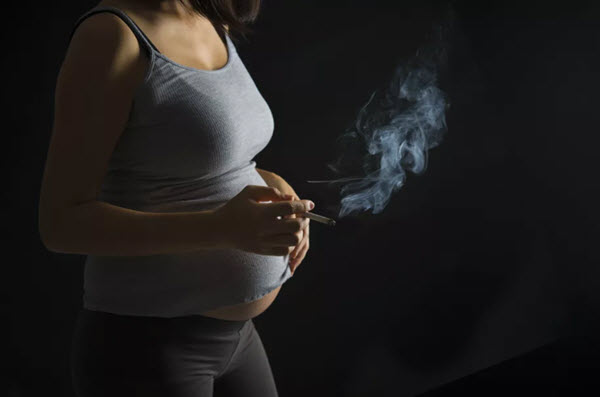Using weed during pregnancy linked to psychotic-like behaviors in children, study finds
 CNN Health 23 September 2020
CNN Health 23 September 2020
Family First Comment: NEW STUDY: Children whose mothers had used during pregnancy were more likely to have psychotic-like behaviours and more attention, social and sleep problems, as well as weaker cognitive abilities. If the woman continued to use after she discovered she was pregnant, the negative effects were more pronounced, the study found, and stayed after adjusting for confounding variables. Use of marijuana by pregnant women has been growing in the United States and other countries such as Canada in recent decades.
If you’re one of the growing numbers of women who use weed while pregnant, think twice: A new study found it may increase psychotic-like behaviors in children.
The study, published Wednesday in JAMA Psychiatry, analyzed data on 11,489 children who were followed as part of the Adolescent Brain Cognitive Development (ABCD) study, which says it’s the “largest long-term study of brain development and child health in the United States.” The children’s cognitive and behavior patterns were evaluated in middle childhood, around age 9.
Of those children, 655 were exposed to cannabis while in utero, according to statements from the mothers. Compared to the 10,834 children with no exposure, children whose mothers had used during pregnancy were more likely to have psychotic-like behaviors and more attention, social and sleep problems, as well as weaker cognitive abilities.
If the woman continued to use after she discovered she was pregnant, the negative effects were more pronounced, the study found, and stayed after adjusting for confounding variables.
“Use of cannabis despite knowledge of pregnancy might represent a preexisting and more severe form of cannabis use,” the authors wrote.
A growing problem
Use of marijuana by pregnant women has been growing in the United States and other countries such as Canada in recent decades. A 2019 analysis of over 450,000 pregnant American women ages 12 to 44 by the National Institute on Drug Abuse found cannabis use more than doubled between 2002 and 2017.
The vast majority of marijuana use was during the first three months of pregnancy, the study found, and it was predominantly recreational rather than medical.
Yet the first trimester may be one of the most sensitive times for the developing brain of a fetus, when it’s most susceptible to damage. Not only does THC — the compound in marijuana that makes you high — enter the fetal brain from the mother’s bloodstream, but once there it can impact the baby’s developing brain.
READ MORE: https://edition.cnn.com/2020/09/23/health/weed-pregnancy-childhood-psychosis-trnd-wellness/index.html






